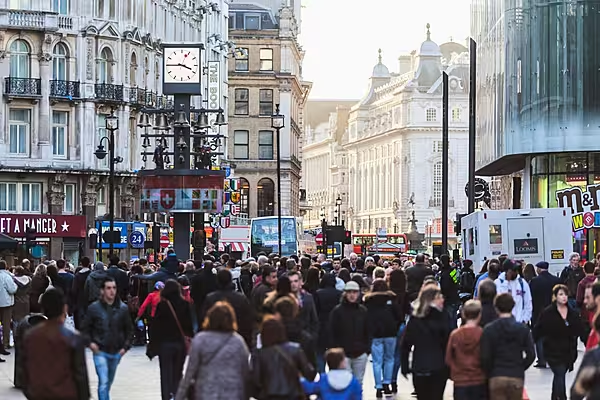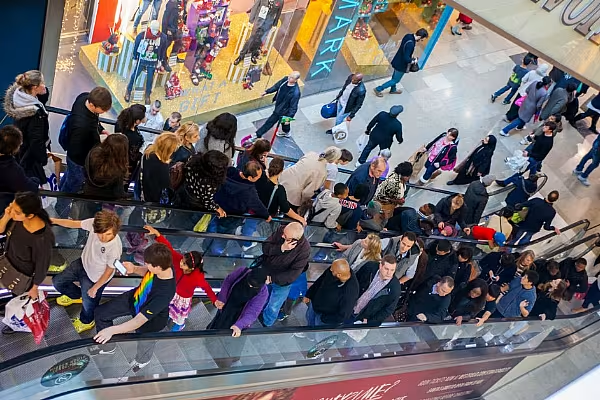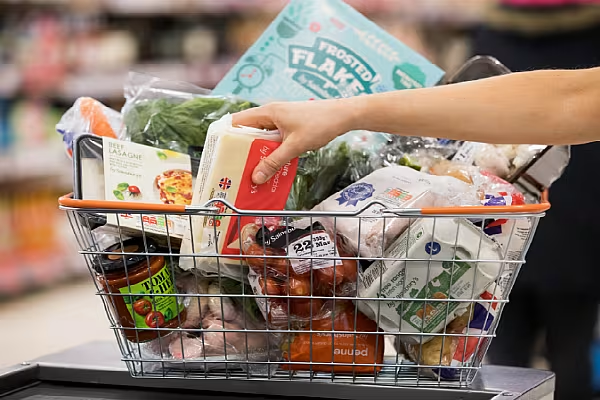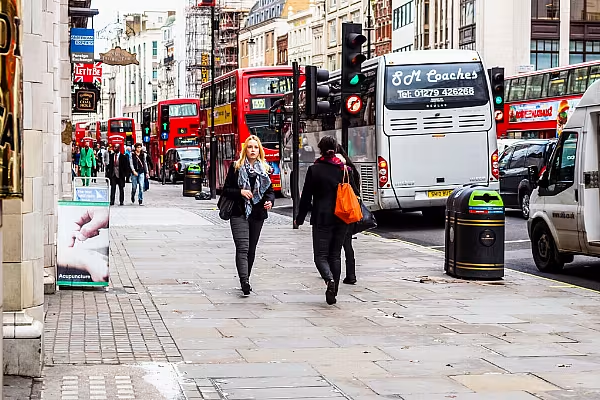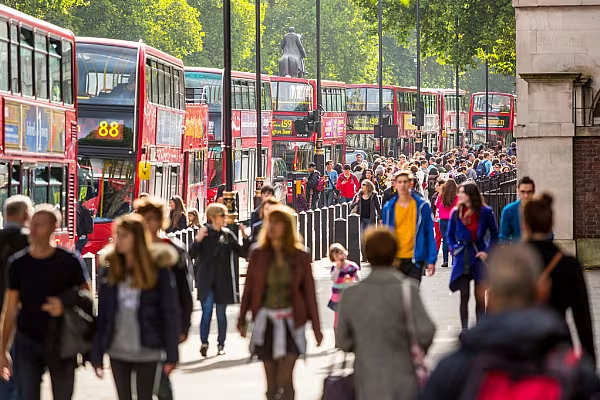UK consumer spending resumed its decline last month after a brief respite, signalling that a key part of the economy is continuing to weaken.
Expenditure fell 0.3% in September, marking a fourth decline in the past five months, IHS Markit and Visa said on Monday. Spending on recreation and culture dropped the most since July 2013, while transport and communication and household goods also slipped.
Consumers barely added anything to gross domestic product in the first half of the year, as tepid wage growth and faster inflation since the Brexit vote undermined confidence. The British economy depends heavily on shoppers, and the continued erosion of their disposable income is draining spending power.
“Despite a slight uptick in UK consumer spending in August, the story of the past few months has been one of wariness,” said Kevin Jenkins, UK and Ireland Managing Director at Visa. September continues the “recent trend of belt tightening, as the landscape of financial uncertainty takes its toll.”
Further Increases
Further price increases could be on the way as retailers deal with additional costs related to employment, according to a separate report by the British Retail Consortium on Monday.
While firms have so far resisted hikes where they can, government measures such as the Apprenticeship Levy and a higher minimum wage mean that they “will find it harder to avoid passing on future cost,” it said.
According to the BRC’s study, 22% of retailers reported that people from the EU have already left their workforce since the Brexit referendum. It called for swift action to provide certainty for such workers, or else shoppers could face even higher prices as a dearth of workers drives up costs.
News by Bloomberg, edited by ESM. Click subscribe to sign up to ESM: The European Supermarket Magazine.
